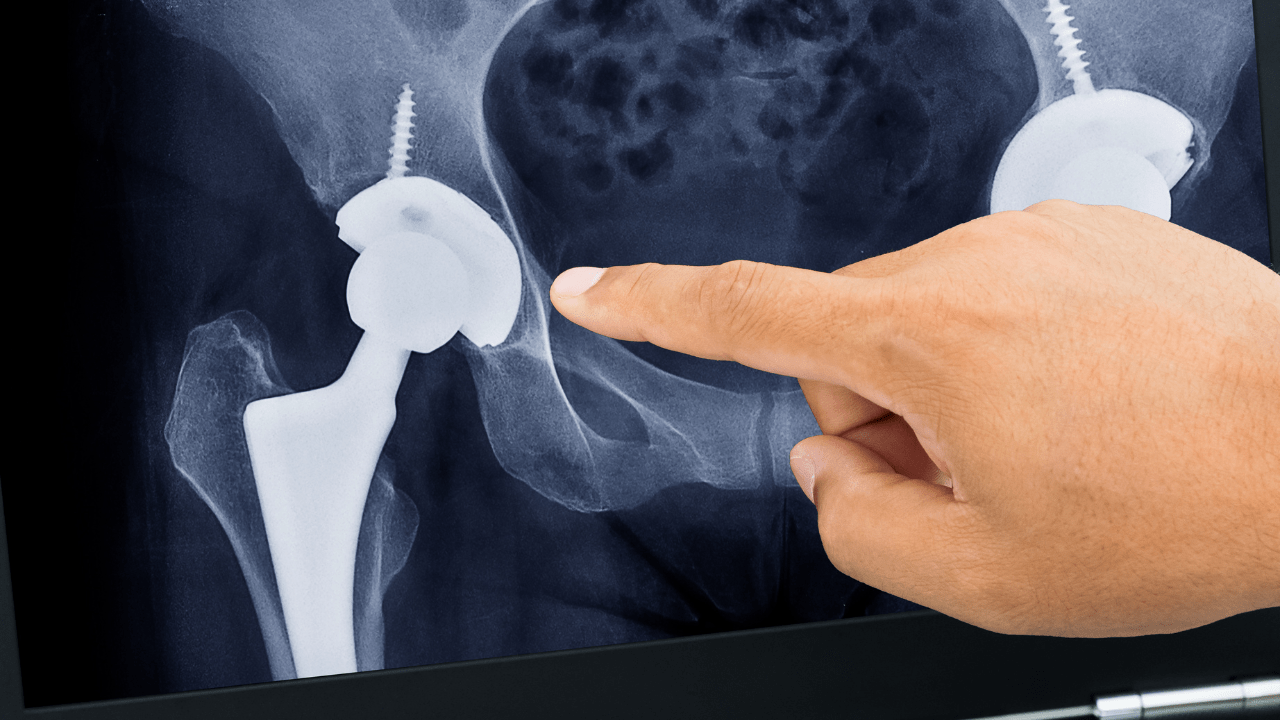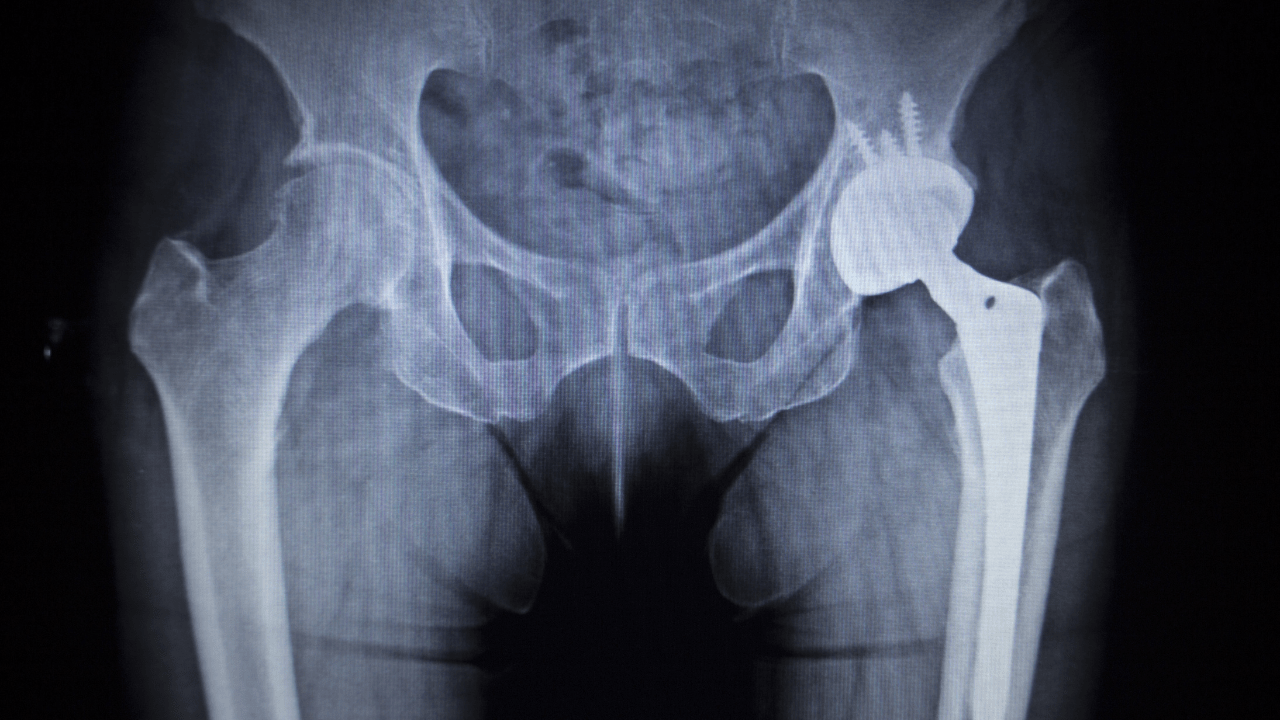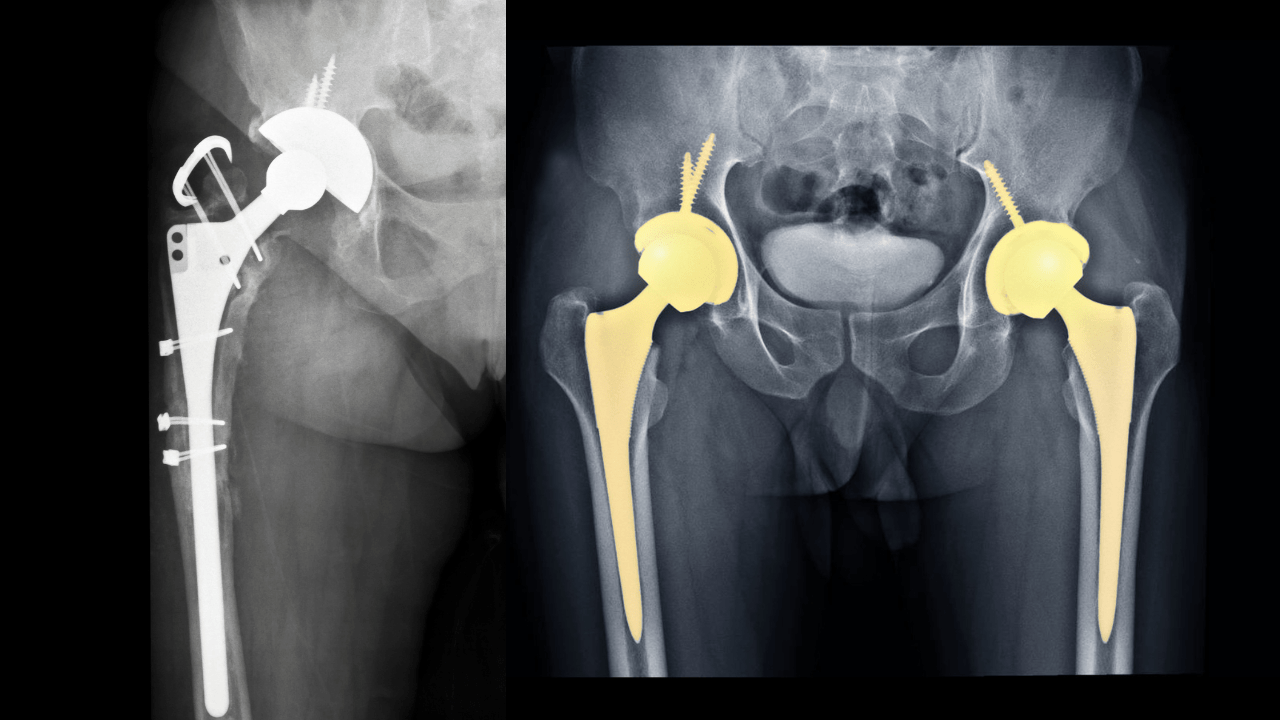Hip Replacement
Hip replacement surgery is a transformative procedure designed to relieve hip pain and restore mobility. Total Hip Replacement involves replacing the entire hip joint, while Partial Hip Replacement replaces only the damaged part of the joint, preserving more of the natural bone. For more severe conditions, Complex Hip Replacement addresses challenging cases like previous surgeries or extensive joint damage, offering a solution for even the most complex hip conditions.
Total Hip Replacement: A Complete Overview
Total Hip Replacement (THR) is a surgical procedure where the damaged or diseased hip joint is replaced with an artificial prosthesis. It’s a highly effective orthopedic surgery aimed at reducing pain and restoring mobility in patients with severe hip joint issues. THR is commonly recommended for those suffering from:
- Osteoarthritis: A degenerative joint condition where the cartilage in the hip wears away over time, leading to pain and restricted movement.
- Rheumatoid Arthritis: An autoimmune condition causing inflammation and damage to the joint lining, resulting in pain, swelling, and joint deformity.
- Avascular Necrosis: A condition where the blood flow to the femoral head is reduced, leading to bone damage and the eventual collapse of the hip joint.
- Hip Fractures: Serious fractures that cannot be repaired through other surgical methods.
Do's
- Follow Preoperative Instructions: Adhere to all pre-surgery guidelines, including fasting, medication adjustments, and attending any educational sessions.
- Provide Complete Medical History: Share your full medical history, including allergies, medications, and past surgeries, with your healthcare team.
- Prepare Your Home: Arrange your living space to make it safer and more accessible during recovery, such as removing tripping hazards and securing handrails.
- Practice Preoperative Exercises: Engage in exercises recommended by your physical therapist to strengthen your hip and improve flexibility before the surgery.
- Maintain Open Communication: Reach out to your healthcare team with any questions or concerns for a better understanding of the procedure and recovery process.
Don’ts:
- Don’t Ignore Infections or Illnesses: Inform your doctor immediately if you experience any infections or illnesses before surgery, as this may require rescheduling.
- Avoid Smoking: If you smoke, quitting before the surgery is crucial as smoking can hinder the healing process and increase the risk of complications.
- Don’t Overexert Yourself: Avoid activities that put too much strain on your hip before surgery, as this could worsen your condition.
- Follow Medication Instructions Carefully: Adhere to your doctor’s guidance regarding medications, especially blood thinners, which may need to be adjusted.
- Don’t Eat or Drink Before Surgery: Follow the fasting instructions provided by your healthcare team to prevent anesthesia-related complications during surgery.
Partial Hip Replacement
Partial Hip Replacement, also known as hip hemiarthroplasty, is a surgical procedure where only one part of the hip joint—typically the femoral head (the ball-shaped end of the thigh bone)—is replaced with an artificial prosthesis. The acetabulum (hip socket) is left intact, as it remains healthy and fully functional. This procedure is often chosen when the damage is isolated to the femoral head, making it a less invasive option compared to a total hip replacement.
Common Reasons for Partial Hip Replacement
- Hip Fractures: Partial hip replacement is often recommended for patients with fractures of the femoral head or neck, especially in older adults with weaker bones.
- Revision of Failed Fracture Fixation: If previous surgical attempts to fix a hip fracture fail, a partial hip replacement may be considered.
- Certain Hip Joint Infections: In some cases, where infection has compromised the femoral head but not the socket, replacing the damaged part can be an effective solution.
Do's
- Follow Pre-Operative Instructions: Adhere to all pre-surgery guidelines, such as fasting, medication adjustments, and hygiene protocols.
- Prepare Your Home for Recovery: Ensure your home is recovery-friendly, with clear paths and assistive tools like a walker or cane.
- Take Prescribed Medications: Follow your doctor’s instructions for pain relief and infection prevention by taking medications as directed.
- Keep the Incision Clean and Dry: Follow proper wound care to promote healing and prevent infections.
- Manage Swelling and Pain: Use ice packs and elevate your leg to reduce swelling, and take pain medications as needed.
Don’ts:
- Avoid Overexertion: Don’t put too much stress on the new joint during early recovery. Increase activity levels gradually as advised by your therapist.
- Do Not Skip Physical Therapy: Consistent physical therapy is crucial for regaining strength and mobility in the hip.
- Don’t Ignore Infection Signs: Watch for fever, redness, or unusual discharge from the incision and contact your doctor if these occur.
- Refrain from High-Impact Activities: Activities that put significant strain on the hip should be avoided until full recovery.
- Avoid Prolonged Sitting: Sitting or lying down for too long can lead to stiffness. Move around periodically to maintain flexibility.
Complex Hip Replacement
Complex Hip Replacement, also known as revision hip replacement, is a specialized and more intricate surgical procedure in which an existing artificial hip joint is removed and replaced with new components. This surgery is typically necessary when a previous hip replacement fails or requires revision due to several factors, including:
- Aseptic Loosening: Over time, the prosthetic components may become loose from the bone, resulting in pain and instability in the joint.
- Implant Wear and Tear: Prosthetic parts can wear out after years of use, leading to pain, inflammation, and restricted movement.
- Infection: In some cases, infections can occur around the hip implant, making it necessary to remove and replace the prosthesis.
- Fracture: Fractures occurring around the original hip implant may require a revision procedure to stabilize the joint.
- Dislocation: Dislocations of the artificial hip joint can cause instability, leading to the need for a revision surgery.
- Periprosthetic Joint Infection (PJI): Persistent infections around the hip prosthesis may necessitate the removal of the implant and replacement with a new one.
Complex hip replacement surgeries are more challenging than standard hip replacements due to factors like scar tissue, bone loss, and potential damage to surrounding structures. Surgeons often use specialized implants, bone grafts, or other advanced techniques to address these complications and ensure stability.
Do's
- Follow Pre-Operative Instructions: Adhere to pre-surgery guidelines, including fasting, medication adjustments, and hygiene protocols.
- Prepare Your Home: Make your living space recovery-friendly with clear pathways and assistive tools like walkers or canes.
- Take Prescribed Medications: Follow the medication schedule, including pain relievers and antibiotics, to manage discomfort and prevent infection.
- Keep the Incision Clean and Dry: Maintain proper care of the surgical incision to promote healing and reduce the risk of infection.
- Manage Swelling and Pain: Use ice packs and elevate the leg to control swelling, and follow the prescribed pain management plan.
Don’ts:
- Avoid Overexertion: Do not put undue stress on the new hip joint during early recovery. Increase activities gradually based on your physical therapist’s recommendations.
- Do Not Skip Physical Therapy: Consistent physical therapy is essential for regaining strength, mobility, and function in the hip.
- Do Not Ignore Signs of Infection: Watch for fever, redness, or unusual discharge from the incision and seek medical attention if these symptoms occur.
- Avoid High-Impact Activities: Stay away from activities that could place significant strain on the hip joint until fully recovered.
- Do Not Sit for Long Periods: Avoid sitting or lying down for too long, as this can cause stiffness. Move around periodically to maintain flexibility
Frequently Asked Questions
What is the difference between Total Hip Replacement and Partial Hip Replacement?
Total Hip Replacement (THR) involves replacing both the femoral head (ball) and the acetabulum (socket) with prosthetic components, while Partial Hip Replacement (hip hemiarthroplasty) only replaces the damaged femoral head, leaving the natural hip socket intact.
When is a Complex Hip Replacement required?
Complex Hip Replacement, or revision surgery, is needed when a previous hip replacement fails due to factors like implant loosening, wear and tear, infection, dislocation, or fractures around the implant.
How long is the recovery time after a hip replacement surgery?
Recovery time can vary, but most patients begin to walk with assistance within a few days and can resume normal activities within 6-12 weeks. Full recovery, especially after a complex or revision hip replacement, can take up to 6-12 months.
What are the risks associated with hip replacement surgery?
Risks include infection, blood clots, implant loosening, dislocation, and damage to surrounding nerves or blood vessels. However, advancements in surgical techniques have significantly reduced these risks.
Will I need physical therapy after hip replacement surgery?
How long do hip replacements last?
With proper care, most hip replacements can last 15-20 years or longer. Complex or revision hip replacements may have a slightly different lifespan depending on the patient’s activity level and overall health.
Can I return to sports after hip replacement surgery?
Low-impact activities like walking, swimming, and cycling are generally encouraged. However, high-impact sports should be avoided to protect the new hip joint and ensure its longevity.
What should I avoid after hip replacement surgery?
Avoid high-impact activities, bending at the hip beyond 90 degrees, crossing your legs, and sitting in low chairs. These precautions help prevent dislocation and protect the new joint.
How painful is the recovery from hip replacement surgery?
While there will be some discomfort and swelling after surgery, pain management medications and physical therapy can help. Most patients report significant pain relief compared to their pre-surgery condition.
How do I know if I need a revision hip replacement?
Symptoms such as persistent pain, instability, difficulty walking, or a noticeable change in hip function after a previous hip replacement may indicate the need for a revision. A consultation with your orthopedic surgeon is essential for diagnosis.
Discover New Heights in Healthcare with
Spire Hospital!

Address
Survey No 588, B4, 1st Floor, Ganesh Market, Jawaharlal Nehru Road, Aai Mata Mandir Chowk, Opp Market Yard Bus Depot, Bibevewadi, Pune : 411037
Phone
9175983868 / 8600159688
punehipandknee@gmail.com


